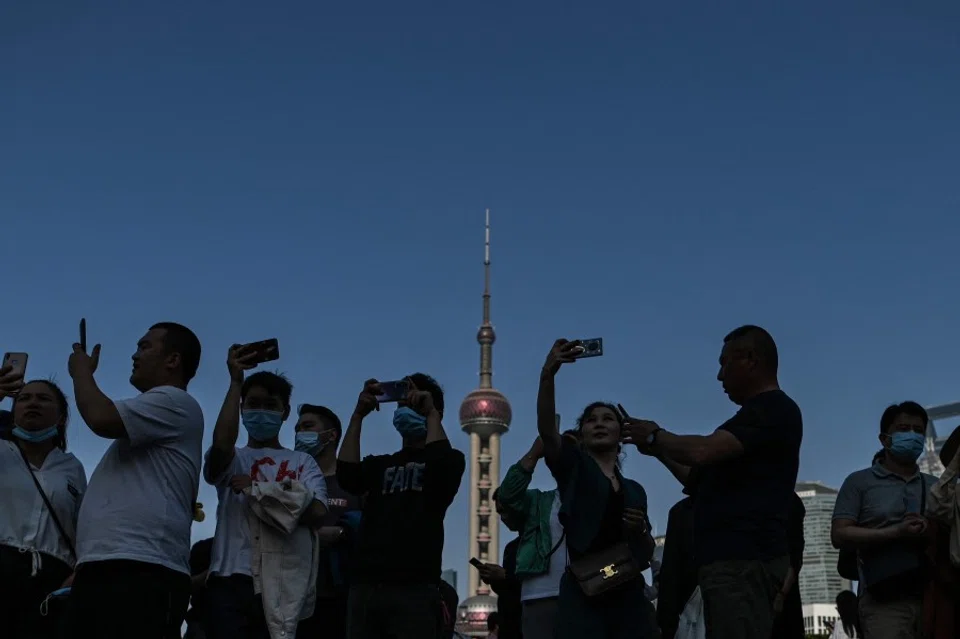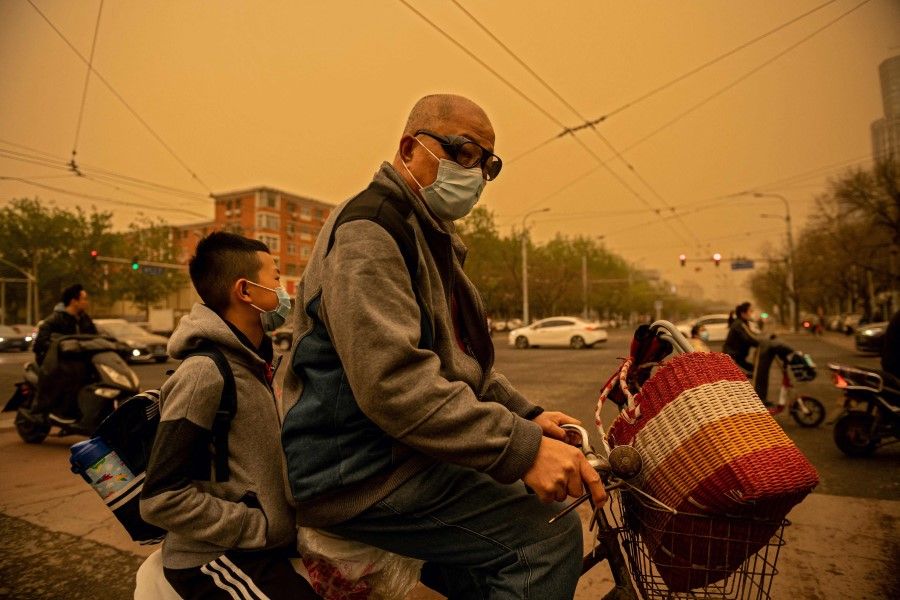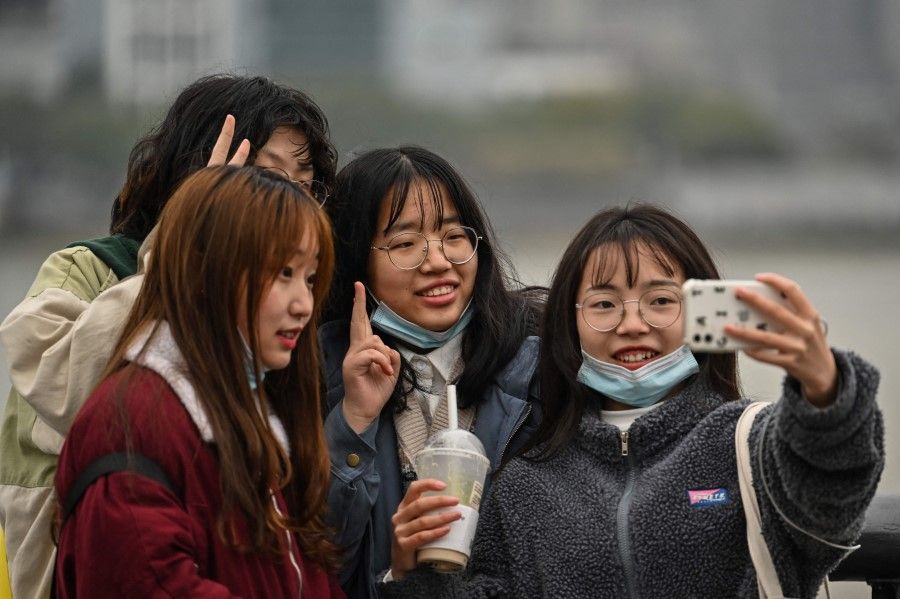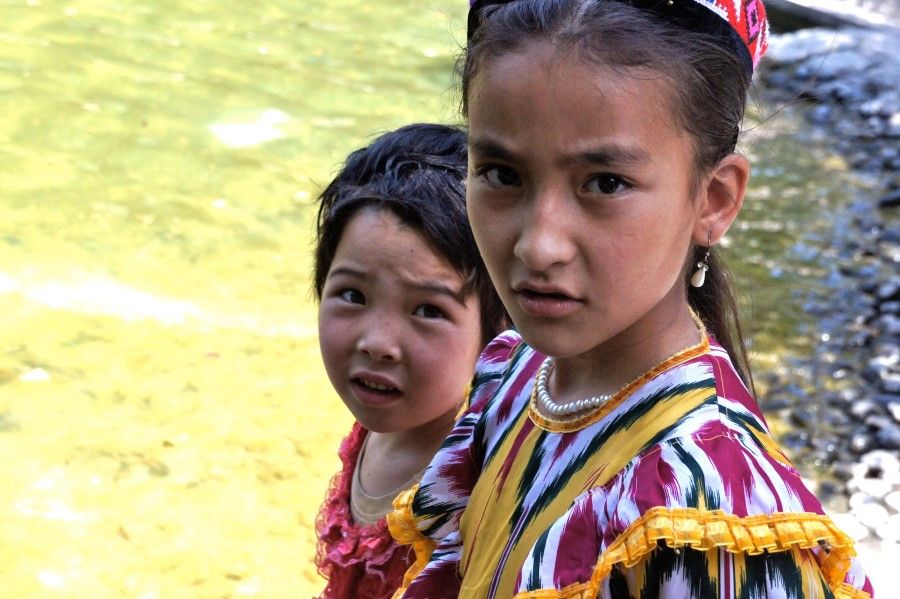Is the US embassy in China recruiting 'traitors'?

Recently, the US embassy in China announced on their website an open competition for awards available through their public diplomacy grants programme. They would support individuals, non-governmental organisations (NGOs), think tanks, and academic institutions in China in promoting American society, history, culture, arts and values. These efforts would go towards helping the Chinese understand the US better. The maximum amount for each award is US$30,000 (about S$39,000).
However, Chinese media have interpreted the move as the US recruiting the "fifth column" within China. One Chinese article by Chinese state media was headlined "US Embassy in China Dangles Reward of Up to US$30,000 to Recruit 'Traitors' in China" while the title of the English version of the article read "US Embassy Increasingly Offensive in Pushing 'Peaceful Evolution' in China by Roping in Activists with Money". The US embassy in China is now a target of criticism.
The initiative includes programmes that provide a framework for US businesses in China to share American values; expanding access for persons with disabilities, women's empowerment, LGBTQI rights, and the preservation of minority cultures; collaboration in sustainable development, sustainable finance, energy issues, eco-tourism, and other related fields; mutual sharing of expertise in environmental protection including of habitats and wildlife unique to China; and public outreach on limiting and mitigating the impact of climate change.

The initiative also states that programmes relating to partisan political activity, charitable or development activities, and programmes that support specific religious activities are not eligible for funding.
Also, the initiative is run by the US State Department, which to put it plainly is "selling dog meat as mutton", or false advertising. - Chinese state media
Public diplomacy or exporting 'colour revolution'?
Global Times, a publication under the People's Daily, ran a long article under the pen name Bu Yidao, claiming that this programme is being initiated by the US State Department under the guise of "'public diplomacy' to propagate and infiltrate all parts of China, including Hong Kong and Macau, and provide funding and transfer benefits to 'specified individuals' or 'organisations' under the cover of cultural activities, and may even aim to instigate a "colour revolution".
The article cited Li Haidong, a professor at the Institute of International Relations at China Foreign Affairs University, saying that based on the text itself, the initiative seems to focus on human values, interests, and rights. However, the problem is that issues such as environmental protection, feminist rights, and ethnic minority issues are highly politicised in the US, while the initiative claims that it does not support "programmes relating to partisan political activity", which is an obvious cover-up. Also, the initiative is run by the US State Department, which to put it plainly is "selling dog meat as mutton", or false advertising.
Li further said the initiative states that it does not support charitable or developmental activities, which means the project is not an unconditional giveaway. Also, there are two points that can be manipulated by the Americans: the selection process for funding recipients, and what happens to recipients after receiving funding and participating in the initiative.
The article felt that the US is exporting "colour revolution" under the pretext of caring for the rights of women, animals, and minorities under the call for "equality". However, behind all that is "incitement toward extremes".
Take the US National Endowment for Democracy for example. Women's rights organisations are at the top of its 2019 list of fundings for NGOs in China. However, noted the article, "those NGOs don't really promote women's rights in China, but use a variety of social media platforms to promote extreme rumours like 'China is the leading country in patriarchal violence' and 'it is a dark time for women' to stoke familial, matrimonial, social, and political system hatred and even ignite a 'revolution'. Some have even colluded with Hong Kong and Xinjiang separatists."

The article also quoted Wang Qiang, a research fellow at the National Defence University, who said the US small grants programmes in public diplomacy are an "offensive diplomatic strategy" that targets "young people who are more receptive to American values". They are regarded by the US government as "a pawn for the target country and society to promote American values in the future", which is one form of a "peaceful revolution".
Wang cited the recent "Art for the People" graffiti project hosted by the US embassy in China, which was sold as an expression of "freedom of speech". But encouraging young graffiti lovers to "exhibit their individuality" like this is in fact "an attempt to bring young people into topics and content generated by the US". Furthermore, "if the government of the target country intervenes, such activities could easily be transformed into an antagonistic relationship between the US government and the government of the target country, and the graffiti lovers".
This article criticising the "recruitment of traitors" by the US embassy in China was shared by many media and news websites, and some WeChat users also joined the discussion.
US efforts to engage China viewed with suspicion
On 21 April, the US Senate Committee on Foreign Relations passed the Strategic Competition Act of 2021, calling on the US government to fork out US$300 million each year to engage in comprehensive strategic competition with China to counter its growing global influence.
WeChat user "Hottest Views on Big Countries" (热评大国之巅) posted that the latest public diplomacy initiative announced by the US embassy in China is probably a sinister part of the US government's annual US$300 million funding used to slander and spread rumours about China.
But in the context of overall opposition between China and the US, each country sees any moves by the other in terms of conspiracy theories and it is difficult to shift away from "combat mode", which makes mutual cooperation and tolerance a pipe dream.

To be fair, it is not surprising for the US embassy in China to spread American values. And apart from values, the initiative also includes non-sensitive items such as technical exchange, wildlife protection, and climate change. Whether it is accurate to simply criticise it as a "colour revolution" or even as openly "recruiting traitors" is worth discussion.
Even when it comes to values, it is not that China and the US cannot communicate at all. For example, the US advocates democracy, freedom, and human rights, while the core values of China's socialism also includes democracy and freedom, and protecting human rights has been written into China's constitution. In particular, China's major achievements in poverty alleviation in recent years is an enormous improvement in human rights.
But in the context of overall opposition between China and the US, each country sees any moves by the other in terms of conspiracy theories and it is difficult to shift away from "combat mode", which makes mutual cooperation and tolerance a pipe dream. This situation will not change in the short term.
